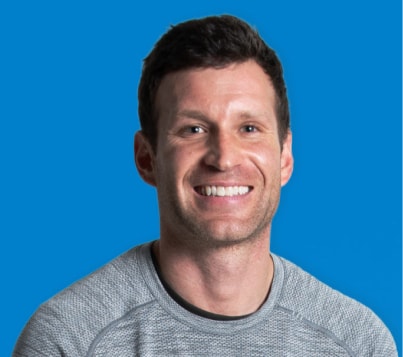November 20, 2024

Summary: Mike Deegan, the head baseball coach at Denison University, takes a unique approach to coaching that goes beyond just winning games. For him, it’s all about guiding his players through personal growth, emphasizing the process over the product, and creating real connections with his athletes. With over 20 years in coaching, Coach Deegan has developed a philosophy centered around resilience, self-improvement, and a growth mindset. Let’s dive into what makes his approach so impactful for his student-athletes.
- Embracing the Process
Coach Deegan believes success isn’t just about trophies or titles. It’s about showing up every day, doing the work, and growing along the way. “If we prepare well, respect the game, build good relationships, and compete, we’ll be successful,” he says.
His team focuses on progress rather than just the scoreboard, so players feel proud of their effort, no matter the outcome. This mindset helps them develop self-discipline and patience, focusing on what they can control instead of just the final results.
- A Mentor Who Learns, Too
For Coach Deegan, mentoring is a two-way street. He doesn’t just see himself as the coach on a pedestal—he’s learning from his players, too. “The young people I coach teach me so much,” he shares.
His mentorship style is about mutual growth, where he’s just as much a learner as he is a guide. He encourages athletes to find mentors who believe in them and are open to learning as well. This back-and-forth dynamic builds trust and makes the mentorship feel genuine.
- Building Strong Teams with Honesty
When recruiting new players, Coach Deegan doesn’t just look at athletic skill; he looks for people who will fit the team’s values. “We focus on alignment, making sure everyone is pulling in the same direction,” he says.
Honesty and transparency are huge for him. He communicates openly about the team’s principles, like grit and selflessness, and lets potential players decide if they’re a good match. This way, everyone on the team is genuinely committed to shared goals.
- Developing Life Skills Off the Field
Coach Deegan doesn’t just mentor on the field; he helps student-athletes with real-life skills like time management, organization, and self-discipline. He teaches them how to set up their study spaces, manage their weekly schedules, and proactively connect with professors.
These executive function skills aren’t just for the classroom; they’re habits that players can carry throughout life, giving them structure and independence.
- Owning Your Confidence
Coach Deegan admits he used to struggle with imposter syndrome, especially early in his career. “A mentor once told me to stop downplaying myself and own the room. His “secret sauce” to building confidence is to simply outwork everyone else, which helps him feel ready in any setting.
He encourages his players to do the same: focus on preparation and hard work, so they can step up with confidence when it matters most.
- Seeing Failure as Part of the Journey
Coach Deegan knows that setbacks are a natural (and even beneficial) part of growth. “Failure is inevitable, but it’s a good teacher if you’re open to learning,” he explains. He encourages his players to view each challenge as a chance to reflect, improve, and build resilience. For him, it’s not about perfection but about staying in the game and bouncing back from setbacks.
- Controlling What You Can
During the fall season, even when there aren’t any official games, Coach Deegan has his team train hard, focusing on things they can control, effort, nutrition, sleep, and recovery. “If you focus on what’s in your control, you’ll be a happier, more fulfilled person,” he believes.
By concentrating on preparation, his players find they can manage stress and stay calm in high-pressure situations.
- Winning the Day
For Coach Deegan, a successful day is about hitting small personal goals, like reading, writing, or connecting with others. “If I hit four or five of my goals, I’ve had a good day,” he says.
This “win the day” approach encourages consistency, gratitude, and finding joy in the everyday process, rather than always chasing big milestones.

Takeaways from Coach Deegan’s Mentorship
- Focus on Growth, Not Just Wins: By focusing on daily progress over end results, athletes build resilience and long-term motivation.
- Find Genuine Mentors: Seek out mentors who are just as invested in learning as they are in teaching.
- Be Honest and Clear: A team that shares core values, like grit and selflessness, stays united and strong.
- Build Life Skills: Executive function skills, like time management and self-discipline, are game-changers both in school and in life.
- Step into Your Confidence: Overcome self-doubt by working hard and believing in your preparation.
- Learn from Every Setback: Embrace challenges as learning opportunities to build a stronger mindset.
- Control What You Can: Focusing on your own effort reduces stress and boosts performance.
- Win the Day: Set small, daily goals that bring a sense of accomplishment and consistency.
Final Thoughts
Coach Mike Deegan’s mentorship is all about authenticity, resilience, and personal growth. He leads by example, showing his athletes how to succeed in both life and sports.
If you’re interested in building similar skills, Untapped Learning offers coaching and resources to help students reach their goals and win the day.

Brandon Slade is the founder of Untapped Learning. He combines his personal experience with executive function challenges with his years of experience in order to help students across the country.





